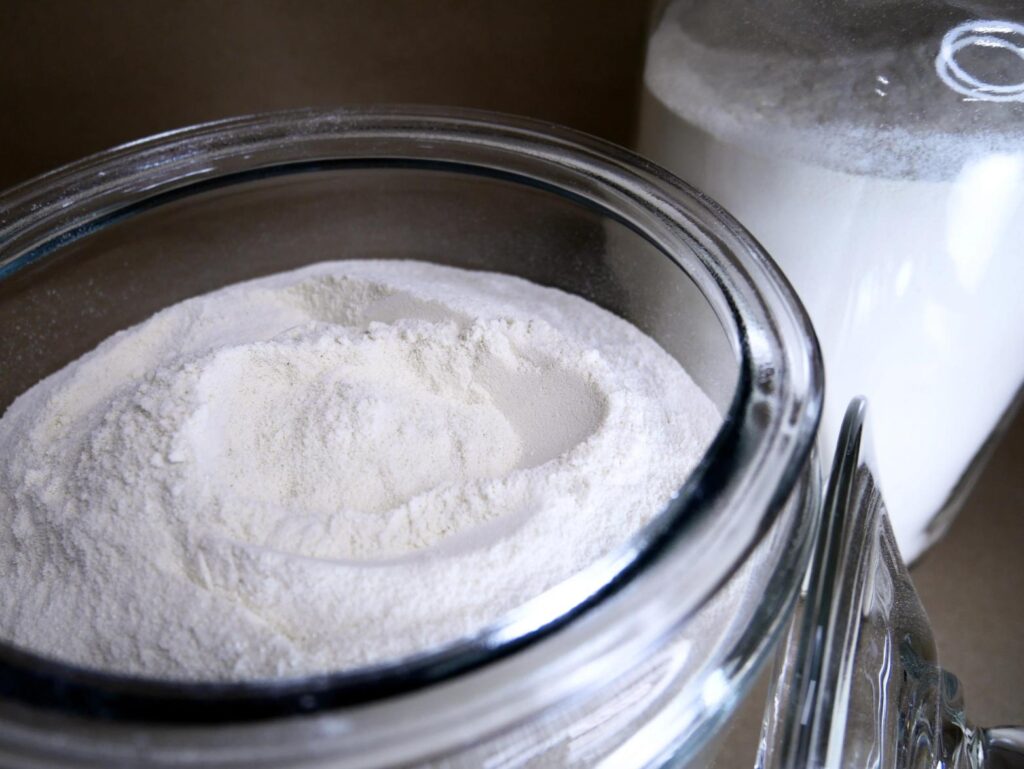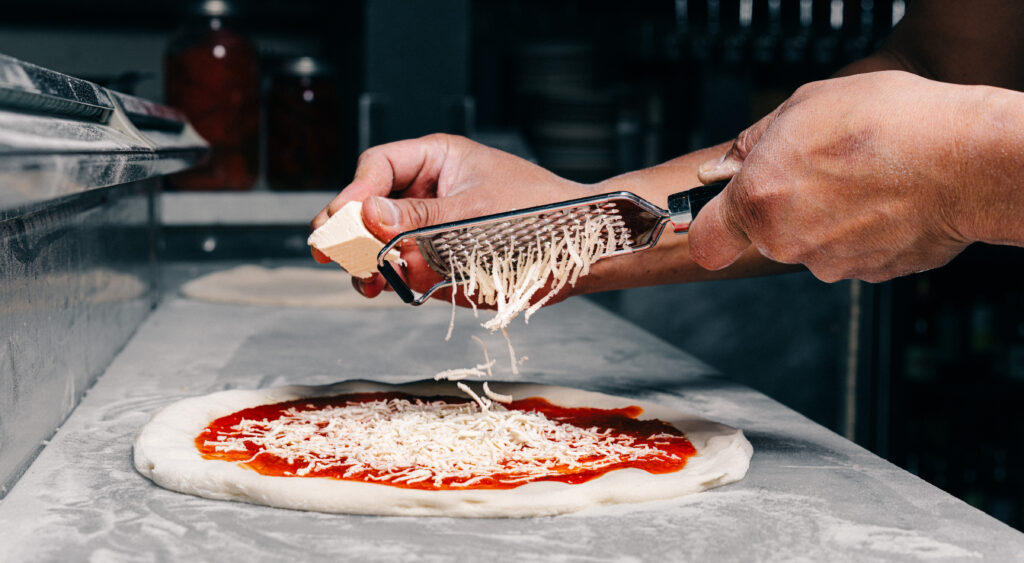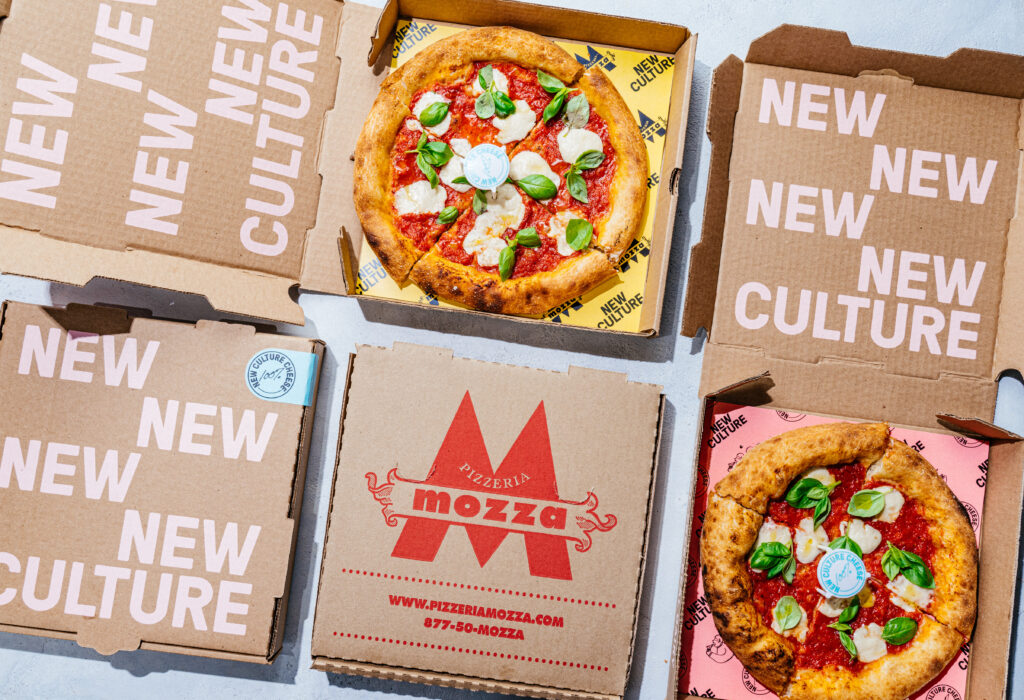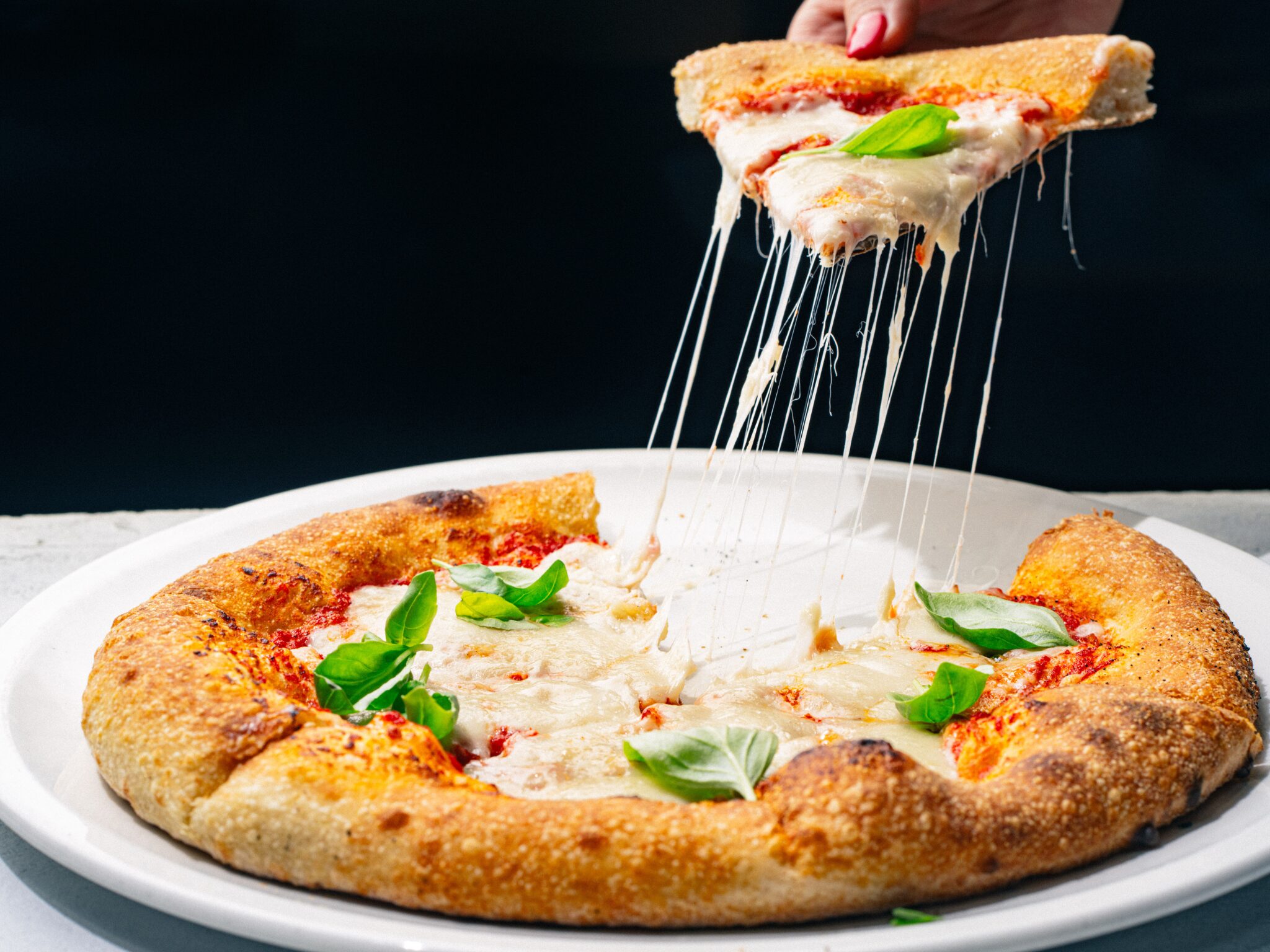New Culture Strikes Deal with CJ CheilJedang to Drive Down Animal-Free Casein Costs
6 Mins Read
San Francisco startup New Culture has partnered with South Korean food giant CJ CheilJedang on a manufacturing deal to enable low-cost production of its precision-fermented casein.
New Culture, the first precision-fermented casein producer approved for sale in the US, is amping up its efforts to make cost-effective animal-free proteins through a manufacturing deal with CJ CheilJedang, which is also an investor in the US startup.
The collaboration is focused on achieving commodity pricing for New Culture’s first product, a precision-fermented mozzarella made for pizzerias. Following a pilot partnership last year, the cheese will debut at Nancy Silverton’s Pizzeria Mozza in Los Angeles later this year.
“Bringing our animal-free cheese to pizza lovers everywhere means producing it at a large enough scale and low enough cost so we can compete and win on product performance,” said New Culture co-founder and CSO Inja Radman.
This is why teaming up with CJ CheilJedang, which has 10 manufacturing facilities in seven countries with millions of litres of fermentation capacity, was key for the alternative protein business. “CJ is the world’s largest producer of bioproducts made from fermentation. They operate at massive scale with some of the most sophisticated assets on the planet that produce products at commodity prices,” New Culture co-founder and CEO Matt Gibson told Green Queen.
“Even getting to this point with CJ reflects the achievements of the New Culture team to demonstrate significant technical progress and make it clear that our bioprocess was robust enough to be worth their time.”
Bringing down animal-free casein costs ‘essential’

The inherent problem with casein – a $2.7B market – is that it’s a dairy protein, and is not friendly to the environment. While New Culture, which is one of just a handful of companies making animal-free analogues of the conventional protein, has not conducted a life-cycle assessment itself, it has analysed publicly available data for comparable processes to estimate that its manufacturing represents at least an 80% drop in greenhouse gas emissions, 95% reduction in land use, and 95% decrease in blue water consumption compared to dairy-based mozzarella production.
But despite delivering such huge climate gains, precision fermentation is still an expensive technology, and bringing down costs is vital if it’s to appeal to the masses. New Culture has claimed that its animal-free casein can produce cheese worth 25,000 pizzas per batch. “Against the backdrop of the almost $9B US mozzarella market, we are currently producing our mozzarella at a (relatively) modest scale and will be for years to come,” said Gibson.
“Once we launch and expand our manufacturing capacity – enabled by this partnership with CJ and our previously announced partnership with ADM – our costs will fall dramatically.” The company has previously noted that scaling up can help cut manufacturing costs by 80%, and Gibson confirmed that its technological prowess and bioprocess will help it reach price parity for pizzerias within three years.
“Reaching price parity is essential for the long-term success of New Culture,” he said. The startup conducted a survey in January, which revealed that 80% of people interested in its animal-free cheese eat animal products. Meanwhile, early adopters are happy to pay $4 more per pizza with the company’s cheese.
“We have a product that is already outcompeting conventional mozzarella in tastings and early adopters are extremely eager to make the shift to animal-free dairy,” said Gibson. “Yet, it’s only by bringing the cost down that we will be able to convert the mainstream consumer who might love our product but be more price-sensitive.”
CJ CheilJedang deal will aid New Culture’s profitability plans

“This partnership with CJ sets us up to achieve price parity to attract those more mainstream consumers, and keeps us on the same timeline trajectory we previously shared,” said Gibson.
Asked how the collaboration will work, he explained: “We’ll coordinate with CJ experts on the details of scale-up and cost drivers including considering facility options, engineering requirements, process optimisation opportunities, and more.
“CJ has a range of world-class bioprocess assets in several countries around the world. We are working with them to understand which sites could be the most cost-effective to run New Culture’s process in order to produce our animal-free casein at the lowest price possible.”
Backed by the likes of Kraft Heinz, SOSV and CJ CheilJedang itself, the company brought in $25M in a Series A round in 2021, and now hopes to strengthen its manufacturing position and path to profitability. “At New Culture, our goal is to build an enduring business that can span decades in order to have as much positive impact on the dairy industry as possible,” said Gibson.
“We believe that sort of long-term success depends on fruitful partnerships with established, industry-leading companies. We aren’t going into this partnership with CJ with any constraints on how long we could work together,” he added.
“Since our initial investment in New Culture in 2022, the CJ CheilJedang team has continued to be impressed by the company’s technical progress, robust bioprocess, and global ambition in the animal-free dairy industry,” said Seung June Choi, senior VP of strategic planning at CJ CheilJedang. “Whether through commercial manufacturing, procurement, or other technical support, this partnership enables the full scope of our expertise to accelerate New Culture’s growth and market leadership.”
What goes into New Culture’s mozzarella?

In February, New Culture reached a milestone after obtaining self-affirmed GRAS (Generally Recognized as Safe) status for its animal-free casein, and announced its plans to launch at Pizzeria Mozza. Gibson confirmed that the animal-free mozzarella is made from “New Culture casein, water, common plant-based fats, and minerals that are naturally occurring in animal cheese”.
“Whether protein, fat, calcium, or other nutritionals, crafting our cheese from real (animal-free) casein enables us to deliver a nutritional profile comparable to what consumers expect from conventional dairy mozzarella,” he said. “This is an important differentiator for New Culture cheese vs existing plant-based options, which are low in protein, high in carbs, and often made from top allergens.”
“I’ve always been of the school of thinking that just because it’s a substitute doesn’t mean it needs to be anything less than spectacular,” Silverton said in May 2023. “When I tried New Culture cheese, I was surprised and excited by the integrity of the product and really felt it lived up to our standards.”
“We’re thrilled about the level of excitement and anticipation from pizza lovers who want a tasty, animal-free option,” said Gibson. “Preparing for any launch requires significant coordination and we’re working hard to get our cheese out into the world as fast as we possibly can.”
Australian-American startup Change Foods, Austria’s Fermify, Indian player Zero Cow Factory, and Paris-based Standing Ovation are working on precision-fermented casein too. California’s Nobell Foods and Israel’s Finally Foods are using molecular farming to produce the protein, while New York-based Pureture and San Francisco startup Climax Foods are producing vegan casein.



